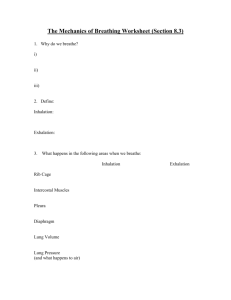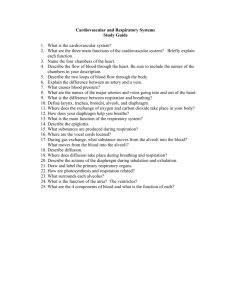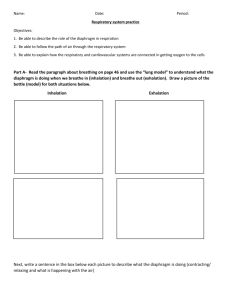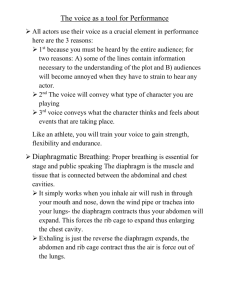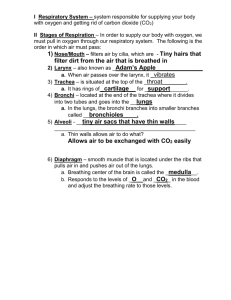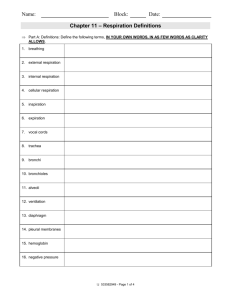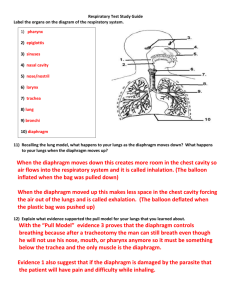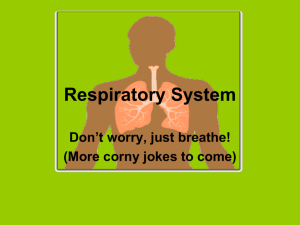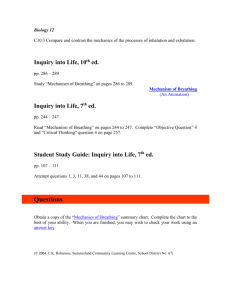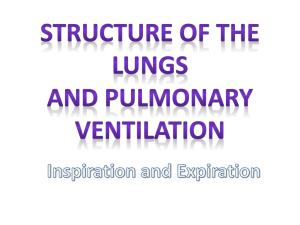Gas exchange
advertisement
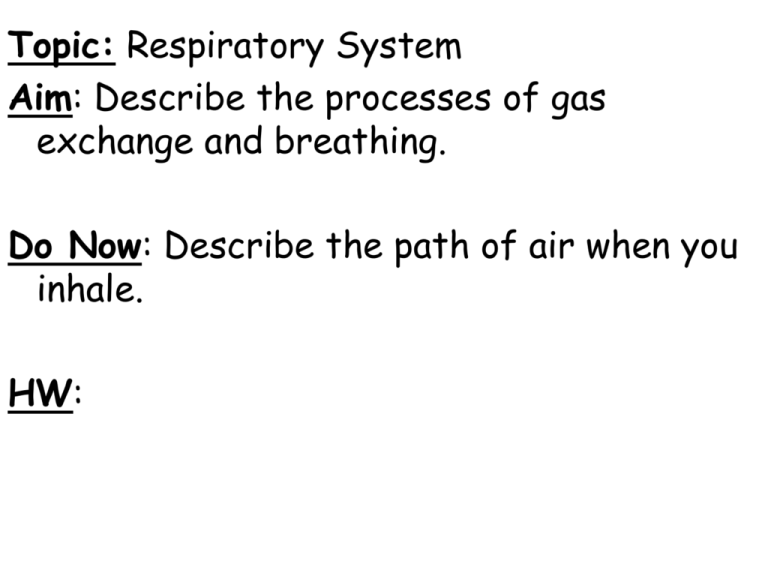
Topic: Respiratory System Aim: Describe the processes of gas exchange and breathing. Do Now: Describe the path of air when you inhale. HW: nose mouth pharynx larynx trachea lung bronchi bronchi bronchioles diaphragm alveoli Did you know… • Your lungs contain almost 1500 miles of airways and over 300 million alveoli. • During normal breathing, the speed that you exhale air is about 4 miles per hour. • Plants are our partners in breathing. We breathe in air, use the oxygen in it, and release carbon dioxide. Plants take in carbon dioxide and release oxygen. Gas exchange a. Alveoli fill up O2 b. O2 diffuses into capillaries c. CO2 & H2O vapor diffuses out of capillaries into alveoli Inside of alveolus CO2 O2 Diaphragm • Sheet of muscle under lungs • Aids in breathing When your diaphragm becomes irritated, it pulls down in a jerky way, which makes you suck air into your throat suddenly. When the air rushing in hits your voice box, you're left with a big hiccup. Some things that irritate the diaphragm are eating too quickly or too much, excessive laughing, an irritation in the stomach or the throat, or feeling nervous or excited (breathing fast). Breathing • Inhalation air travels INTO lungs • Exhalation air pushed OUT OF lungs • Involves the diaphragm & rib cage muscles Inhalation • Diaphragm moves DOWN (contracts) • Rib cage expands • Less pressure • Air rushes in Exhalation • Diaphragm moves UP (relaxes) • Rib cage relaxes • More pressure • Air forced out Maindex REMEMBER… Inhale DOWN Exhale UP What controls breathing rate? • Brain MEDULLA –Detects the level of CO2 in the blood Let’s summarize…: 1. Where does gas exchange occur? 2. Describe the process of gas exchange. 3. Which way does the diaphragm move during inhalation? During exhalation? 4. What happens to pressure in the chest cavity during inhalation? During exhalation? 5. Which gas regulates breathing rate? http://www.youtube.com/watch?v=6NXaHGuRMsc&feature=related BELL JAR MODEL OF THE RESPIRATORY SYSTEM 1 2 3 4 1 = TRACHEA 2 = BRONCHI 3 = ALVEOLI 4 = DIAPHRAGM BELL JAR MODEL OF THE RESPIRATORY SYSTEM EXHALATION INHALATION BELL JAR MODEL OF THE RESPIRATORY SYSTEM EXHALATION Diaphragm moves UP Pressure increases Air forced up & out INHALATION Diaphragm moves DOWN Pressure decreases Air enters
